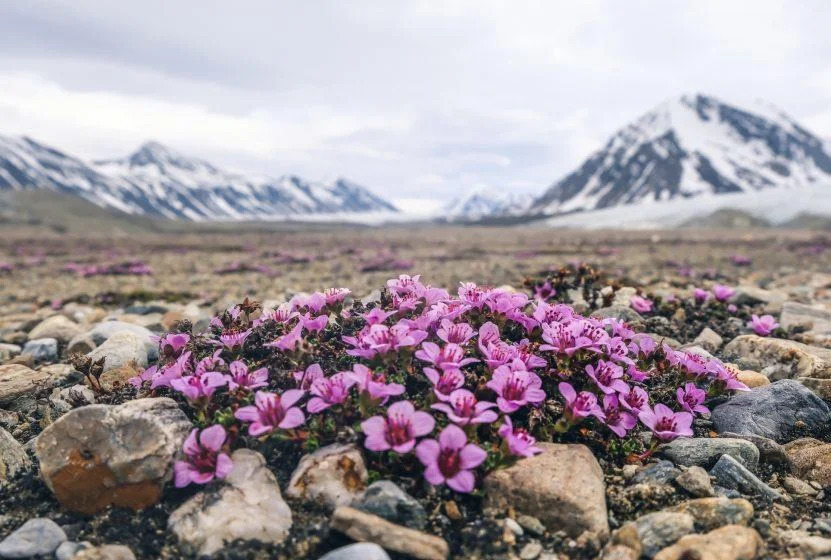
Due to the ongoing impact of climate change, the Arctic is currently witnessing the blooming of flowers, shedding light on the transformative effects of warming temperatures in the region. While not entirely unexpected given the global trend of rising temperatures, this botanical shift holds significant implications for the Arctic ecosystem and beyond.
Blooms in the Frozen North:
Contrary to the conventional perception of the Arctic as a perpetually frozen expanse, the emergence of blooming flowers underscores the tangible effects of climate change on even the most extreme environments. The warming Arctic conditions are providing an environment conducive to plant life that was once considered improbable.
Implications for the Arctic Ecosystem:
- Ecological Adaptation: The flowering plants signify an adaptive response of the Arctic ecosystem to changing temperatures. The region’s flora is adjusting to the new climate reality, potentially reshaping the dynamics of the ecosystem.
- Shifts in Biodiversity: The introduction of flowering plants may lead to shifts in biodiversity as new species compete with established ones for resources. This dynamic could have cascading effects on Arctic flora and fauna.
- Altered Landscape: The blooming flowers could bring about changes in the Arctic landscape, impacting not only the flora but also the habitats and migratory patterns of indigenous species.
Global Environmental Context:
- Climate Change Indicator: The flourishing flowers serve as a visible indicator of climate change, reinforcing the urgent need for global efforts to mitigate its impact and adapt to evolving environmental conditions.
- International Ramifications: The changes in the Arctic ecosystem have implications beyond the polar region. The altered landscape could affect global climate patterns and have far-reaching consequences for biodiversity and ecosystems worldwide.
The Call to Address Climate Change:
While the blooming flowers in the Arctic may not be entirely surprising in the context of climate change, their presence emphasizes the ongoing and tangible consequences of global warming. It serves as a compelling call to action, urging the international community to intensify efforts to combat climate change, reduce carbon emissions, and safeguard the delicate balance of our planet’s ecosystems.
The Arctic, once considered immune to such transformations, now stands as a vivid reminder of the interconnectedness of Earth’s diverse ecosystems in the face of climate change.





